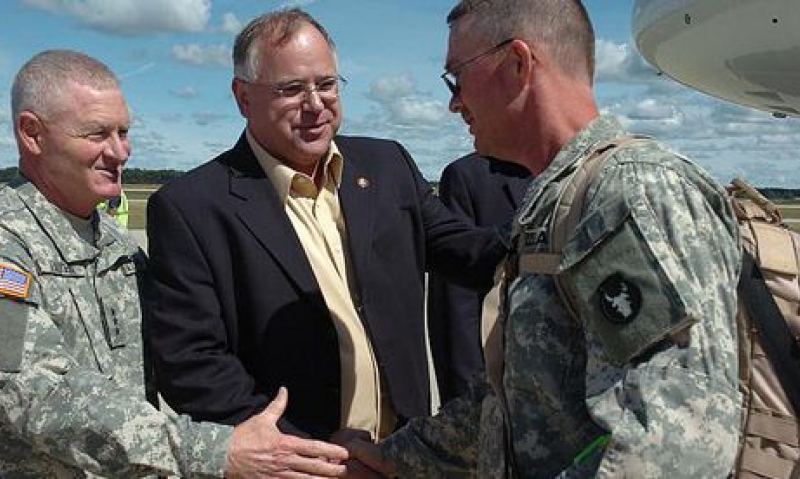
Once mainstays in Congress, veterans are now few and far between on Capitol Hill. Washington could use an infusion of veterans now.
“The nation today needs men who think in terms of service to their country and not in terms of their country’s debt to them.”
What Gen. Omar Bradley observed in 1948 is just as true today, and the good news is that some of those who have served our country in uniform are answering our country’s call to serve yet again by running for Congress.
Washington would certainly benefit from an infusion of veterans.
First, no institution is more respected than the military by Americans, and few are less respected than Congress. A recent Gallup poll revealed that 82 percent of Americans have confidence in the U.S. military, while just 11 percent express confidence in Congress.
Second, Congress needs more veterans to bring their real-world experience and sense of purpose to the policymaking process. Fair or not, the perception is that members of Congress are ensnared by special interests and focused on little else than amassing power and using it to get re-elected. In fact, according to polls conducted by CBS and The New York Times, 80 percent of respondents say Congress is more interested in special interests than in the American people.
Perhaps another reason that respect for Congress has plummeted in recent years is related to the declining number of veterans serving there. According to a Congressional Research Service (CRS) study, only 122 members of the current Congress are veterans – seven less than in the previous Congress.
It wasn’t always this way. “For 30 years after the Civil War,” as military historian Victor Davis Hanson observes, “almost no American could get elected to office without prior Union or Confederate Civil War service.” He notes that “being a World War II veteran was virtually mandatory for any congressional leader until about 1970.”
Indeed, in 1969, 398 of the 535 members of the House and Senate were military veterans. A USA Today report notes that the number of veterans in Congress peaked in 1977, when they comprised more than three-fourths of members. But by 1979, the number of veterans serving in Congress had fallen to 298. We have far less than half that number in today’s Congress.
That said, it reflects a broad cross section of the veteran community. According to CRS, members include vets who have served in World War II, the Korean War, the Vietnam War, the Persian Gulf War, Kosovo, Afghanistan and Iraq, as well as during peacetime. Some have served in the reserves and the National Guard. Several members are still serving as reservists. Three representatives and one senator in the 111th Congress are graduates of the U.S. Military Academy, and two senators and two representatives are graduates of the U.S. Naval Academy.
More than 20 veterans who have served in Iraq or Afghanistan are running for Congress this year, according to Hanson. They’re running as both Democrats and Republicans, so neither party has a monopoly on veterans.
“Iraq and Afghanistan veterans see the world differently than traditional political types,” said Pete Hegseth of Vets for Freedom in a recent interview with CNN. “They make real-world decisions, tough decisions.”
Amid mounting debt and spiraling spending at home, new and old threats abroad, and almost a decade of war, the United States needs Congress to make lots of tough decisions in the years ahead. Liberators of Iraq and Afghanistan, guardians of the U.S. homeland, defenders of far-off places with unpronounceable names, and the vanguard of a global offensive against terror, today’s cohort of veterans is equipped to do just that. As military historian John Keegan has observed, the world of the warrior “exists in parallel with the everyday world but does not belong to it.” Thus, they are motivated by different values – honor, duty and service – than many of the people they defend and protect.
America’s warriors make life-and-death decisions each and every day, putting their unit, their country, and the people of Afghanistan and Iraq and Yemen and who knows where else ahead of themselves.
Veterans aren’t perfect, of course, and they won’t be able to fix everything. But Washington will definitely benefit from more contact with those “who think in terms of service to their country and not in terms of their country’s debt to them.”
- Landing Zone

